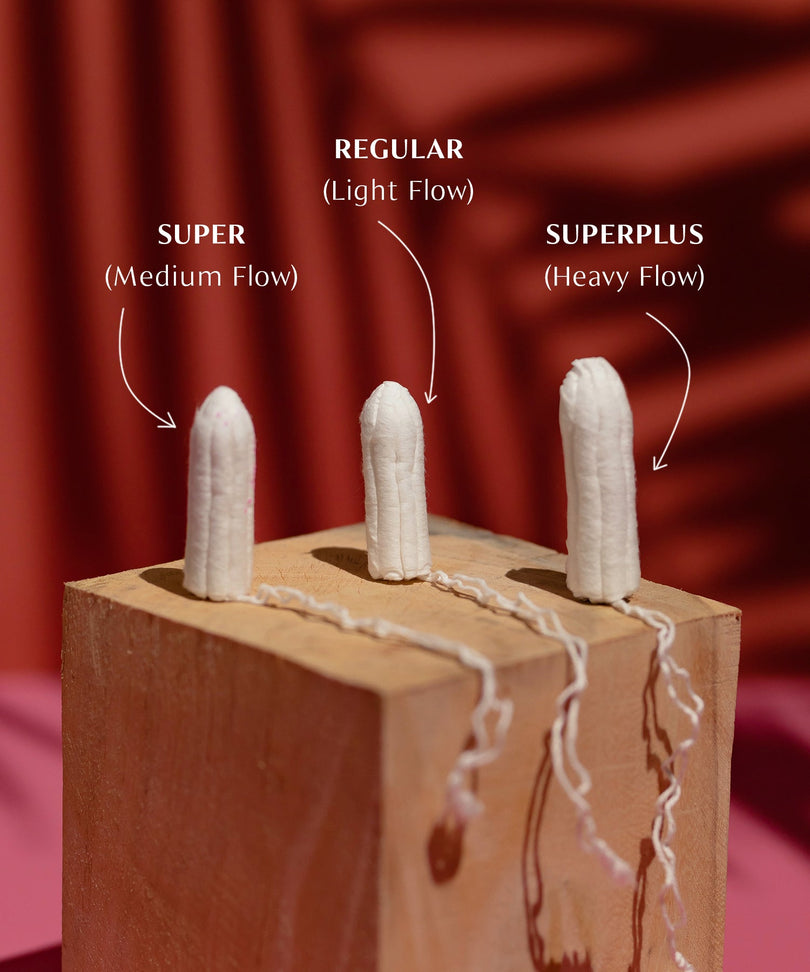For some of us, our periods are that one annoying time of the month in which we have to deal with fatigue and cramps, all while going about with our regular lives. While this perspective is valid, periods can also offer insights into your state of health.
A regular and healthy period is a clear sign of good reproductive health and fertility. Apart from that, your period shares relationships with your endocrine, digestive, circulatory and skeletal systems among others.
Your menstrual cycle can tell you a lot about your health. What constitutes a healthy and regular cycle varies from person to person. Your cycle will also go through a lot of changes throughout your lifetime, which won’t all be worrisome.
When tracking your periods, keep an eye out for these factors to know if you’re going through anything out of the ordinary.
Menstrual Flow
Your menstrual flow may vary slightly from cycle to cycle, and an occasional period which is lighter/heavier than usual is not a cause for concern.
If you have a light flow, which means losing less than a teaspoon of blood or bleeding for fewer days than usual, you may not even need to use a sanitary pad/tampon as often. This is common among those using hormonal birth control methods. If you consistently have lighter periods for over 2-3 cycles, you should consult your gynaecologist.
If you have a heavy flow, in which you soak through your pads in 1-2 hours or less, it is likely a symptom of an underlying condition. This could be a blood disorder, PCOS, endometriosis or uterine fibroids among others. If your heavy flow is accompanied by fatigue and dizziness, you may be anemic as the loss of red blood cells leads to an iron deficiency in your body. This can be checked by a blood test.
Blood Colour
The colour of your menstrual discharge has more to do with your flow and is not a reliable indicator of your health in general.
A bright, red flow suggests that your blood passes consistently. If your blood is dark or brown, it may suggest a slower flow as your blood takes a longer time to flow out of your vagina. When blood is exposed to air, it turns dark and brown.
If your blood has a slight hint of orange or yellow, it is normally not a cause of concern and usually occurs due to the mixing of mucus and blood.
Read more about vaginal discharge here.
Cycle Regularity
Your period takes a few years to become regular after your menarche, and even a regular cycle is bound to fluctuate as you age. A regular cycle does not have to follow a strict 28-day cycle, but can come between every 21-36 days.
If you face any menstrual irregularities such as bleeding too frequently or missing periods, they may be caused by hormonal fluctuations, medication, menstrual disorders or stress.
If you’ve missed more than 2 periods in a row, you should visit your doctor to rule out pregnancy and to check if you’re suffering from a menstrual disorder. Missed periods are also common among athletes and dancers. Engaging in rigorous exercise can disrupt the body’s estrogen production to conserve energy.
Also read - Link between periods and mental health
PMS Symptoms
Your PMS symptoms may sometimes be a sign of an underlying condition, depending on the severity. If you have an underlying condition, your symptoms tend to get worse during your luteal phase. This applies to digestive issues like Irritable Bowel Syndrome and mental disorders like depression and anxiety.
If you experience very intense emotional symptoms just before your period, including mood swings, depressive symptoms and even suicidality, and do not maintain these symptoms throughout the rest of your cycle, you may have Premenstrual Dysphoric Disorder.
Also read - Can stress delay your period?
Bleeding in between Periods
Spotting in between periods can be caused by sex or recently starting birth control. If you’re bleeding between periods, it could be because of uterine growths like fibroids or endometriosis. Abnormal vaginal bleeding is also associated with STDs like gonorrhea and chlamydia.
If you’re pregnant, you may still experience spotting around 10-14 days after getting pregnant.
You should get your abnormal bleeding/spotting checked out by a doctor to find a cause and treat it.
Also read - Hymen blood and period blood
Menstrual Cramps
Cramps are caused by the muscle contractions of your uterus to push out your uterine lining. If your cramps are too severe and impact your ability to function regularly, you may have dysmenorrhea. This could be caused by menstrual disorders or could be a sign of a high level of prostaglandins in the body, which triggers uterine cramps.
Having a diet rich in vitamins and minerals like iron and magnesium, sleeping adequately and getting in light to moderate exercise can help reduce the severity of cramps. If you suffer from menstrual cramps, try implementing these lifestyle changes as applicable and see if they benefit you.
Excretory Issues
Problems in the bathroom during your periods, like experiencing pain when urinating or pooping, or feeling constipated can be signs of endometriosis.
Endometriosis refers to the growth of the uterine lining outside the uterus and can affect the bladder, bowel, and rectum. Informing your doctor about your issues in the bathroom can help confirm a diagnosis and guide where your abnormal growths are.
Read more
How does nutrition affect your menstrual cycle?
Tips to maintain a healthy reproductive system









